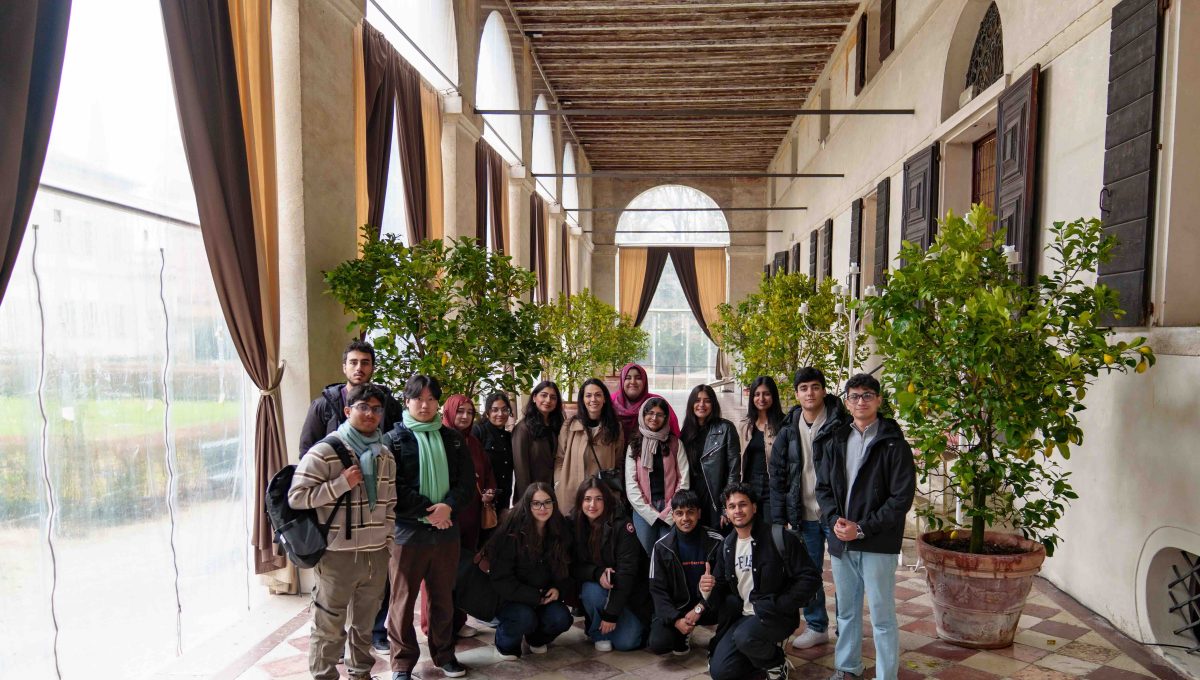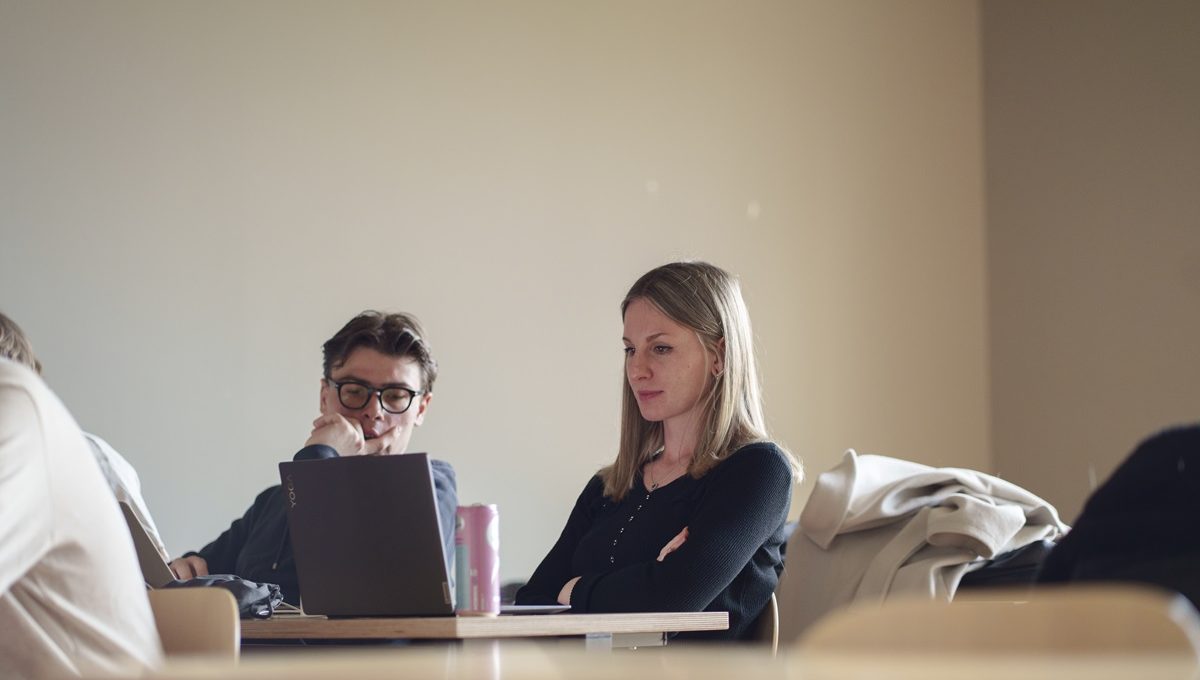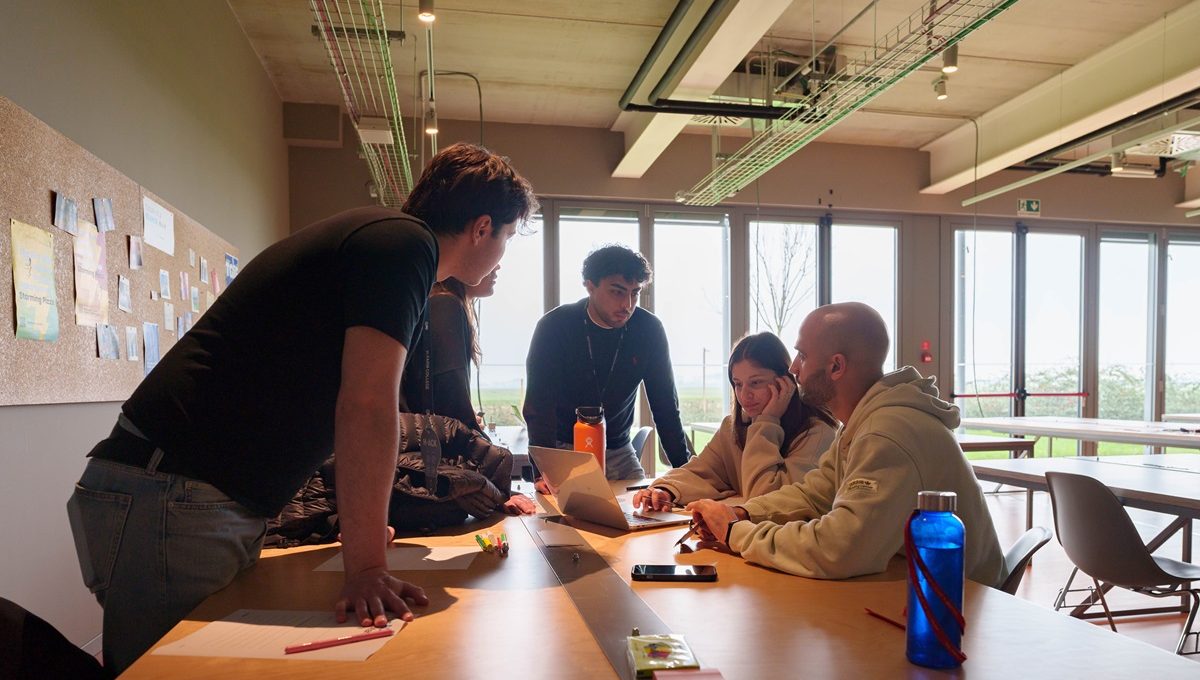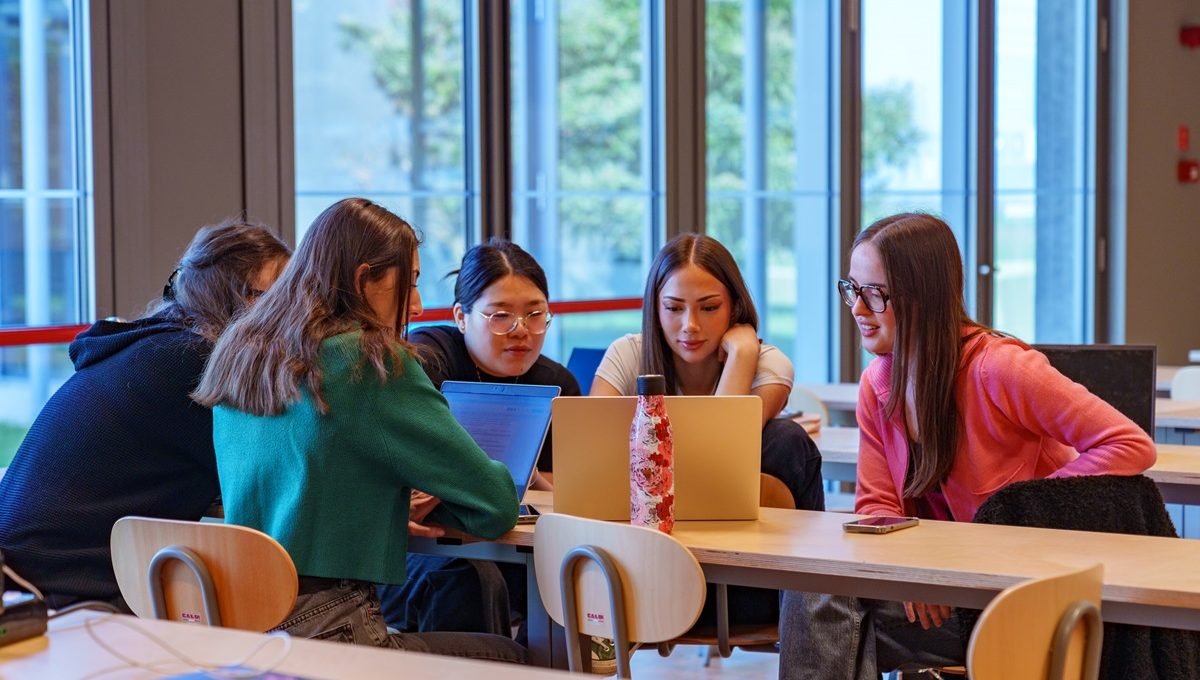Learning in the classroom: Humanism in the Digital Age

The Enhancing course “Humanism in the Digital Age” addresses some of the most pressing questions of our time. In a world where technology is evolving at an unprecedented pace, understanding how humanistic values intersect with digital innovation has never been more crucial. This course, led by philosopher Jonathan Molinari, dives deep into the philosophical, ethical, and artistic dimensions of our digital future.
Why study Humanism in the Digital Age? Classes explore fundamental questions: What does it mean to be “intelligent” in an age dominated by Artificial Intelligence? How should we understand the evolving relationship between humans and machines? And how is digital art reshaping our understanding of aesthetics and creativity?
To answer these questions, students engaged with world-renowned thinkers who are pushing the boundaries of philosophy, art, and technology. Pietro Omodeo, a cultural historian of science, challenged students to reconsider the relationship between knowledge, politics, and the Anthropocene. Mattia Carretti, co-founder of fuse*, introduced students to the intersection of technology and multimedia art, showing how digital tools are transforming artistic expression. Valentino Catricalà, an expert in the relationship between media and art, offered invaluable insight into the evolving role of technology in shaping contemporary culture.
By the end of the course, students gain the ability to question assumptions, navigate rapid change with historical perspective, and apply humanistic knowledge to the challenges of today’s digital world. In an era where technology increasingly defines our reality, understanding its impact through a humanistic lens is more relevant than ever.
As Professor Jonathan Molinari puts it, “In the course ‘Humanism in the Digital Age,’ students explore, through the kaleidoscope of the greatest philosophers in the Western tradition, the many meanings that a humanistic view of reality entails. Who are we? How should we act? What role do art and culture play in our future? If these are the most important questions we must ask, we can only do so through the lens of a critical and open knowledge, rooted in a long tradition that renews itself every day and teaches us that the most important answer is always the ability to doubt — a quality that defines humanity and makes us free architects of our own future.”
























 Back
Back
